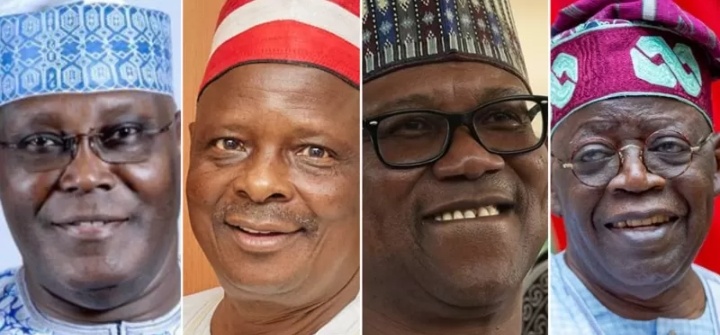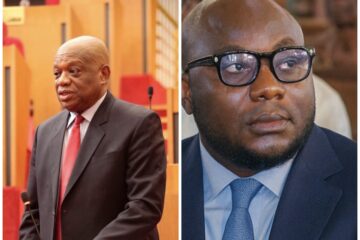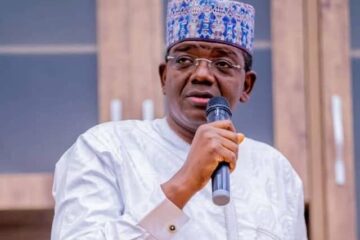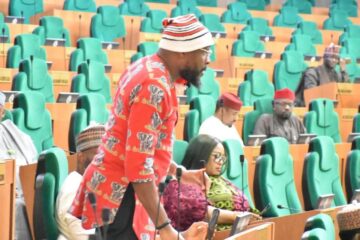All political parties have chosen presidential candidates and running mates for the 2023 elections, but the choices made by the People’s Democratic Party (PDP) and the All Progressive Congress (APC) have raised concerns about moral justice in a multi-ethnic and religious society like Nigeria. Despite the crude manner in which many tribes were brought together to form a nation, with little or no regard for their common qualities or distinctive characteristics, countless nation-building attempts have been made to ensure a more cohesive, unified, and stronger Nigeria. One policy attempt at fostering this cohesion is the Federal Character Principle, which attempts to recognise the country’s diversity in both infrastructure development and public sector employment. On the idiosyncratic front, some past presidents have demonstrated reasonable recognition of the country’s diverse socio-cultural and religious components by insisting on ethnic and religious balance in the hiring of persons into sensitive public positions and public service recruitment.
Since the return of democracy to Nigeria in 1999, most political leaders, even at the party level, have continued to adapt to the nuances of the country’s political structure. Political parties have made efforts to acknowledge the nation’s religious and cultural diversity; they have alternated between Christianity and Islam in their choice of presidential candidates. When the main party candidate is of a specific faith, the running mate must be of the other religion, and some parties, when they take over government, have tried to integrate the major ethnic groups in those high political offices in the country. The People’s Democratic Party recognised this value at the time of its founding and incorporated political position zoning into their constitution as a means of advancing this cause.
However, the choices of leading candidates and running mates for the 2023 presidential election by the PDP and the APC have raised the question of recognition, a fundamental justice concern in moral philosophy. From ancient Greek ethics, Scottish moral philosophy, Kantian categorical imperative, to Hegelian ethics, recognition has always been a key tenet of moral-practical philosophy. Political philosophy has refined the normative theory of the political order over time, emphasising the need to eliminate any type of social or economic inequality that cannot be justified rationally. This influential idea of justice switched its normative purpose from the abolition of inequality to the avoidance of humiliation and contempt. Nancy Frazer constructed an all-encompassing theory of justice that embraces both valid claims for social equality and plausible arguments for the acknowledgment of diversity, elevating recognition as a justice issue to a moral requirement under present conditions of value diversity. A famous social theorist, Axel Honnet, considers recognition as a “reciprocal respect for both the distinctive and equal identity of all others” that must underpin modern societies in order to support the growth of engaged individuals’ awareness of their civil values. Recognition of an individual or a group for a certain attribute shows that one has adopted a positive attitude toward that trait and establishes a normative duty to treat the person or group as equals and free.
Both the APC’s choice to field a Muslim-Muslim ticket and the PDP’s insistence on keeping the presidency in the North and within the Fulani ethnic group are prime examples of a profound misunderstanding of moral politics. It is unfair that certain people and groups feel excluded because of institutionalised cultural value patterns that reduce their unique features or the distinctive attributes that have been assigned to them but in whose construction they did not equally participate. The strategists and decision-makers in the APC and PDP were unable to recognise this. As President Buhari’s (a Northern Fulani) second term comes to an end, the controversy over whether the presidency should be shifted to the South in 2023 rages on. This was hotly discussed within the ruling APC and the PDP. Due to the PDP’s previous adherence to zoning, there was a significant presumption that the party would not only place the party’s presidential ticket in the South but in the South-East in reverence of their defined principles of operation since 1999. However, following the end of the party primaries, the APC was successful in shifting their presidential slot to the South, but failed to recognise the South East, which is the only area that has not been given a chance at the presidency. The party’s presidential candidate is a Muslim from the South West. As if that weren’t enough, the APC nominated yet another Muslim as its presidential running mate. Instead of moving south, the PDP presidential flag bearer stayed in the north and among the Fulani ethnic group. On the religious front, the APC disregarded moral persuasion and chose two Muslims as its presidential candidate and running mate, killing the much-anticipated power transfer to the Igbos to attempt a shot at the presidency.
Supporters of the APC and the PDP have advised Nigerians to approach these options with open minds and to focus more on the candidates’ abilities to deliver and direct the allocation and redistribution of societal values. What these proponents have overlooked is that social relations cannot be measured solely in terms of an equitable or just distribution of material goods; rather, people or social groups must be accepted and respected for who they are, regardless of differences, in order to foster democratic engagement across existing gaps and create a broad-based orientation that combines the best elements of recognition and redistribution politics. As Nigerians, we constantly argue that ethnicity and religion should be deemphasized in our national identity. Unfortunately, this is our trajectory in life as a country, and an integral element of our existence.
In contrast to Nigeria, where they have been exploited to further reinforce chauvinistic interests, ethnicity and religion have not historically been significant barriers to national growth, particularly in more religiously diverse nations such as Singapore, Taiwan, and the African continent’s Togo, Ivory Coast, and Guinea-Bissau. Religious crises, on the other hand, are not as common in all of these countries as they are in Nigeria, where manipulation and misrecognition have turned religion into a cause of misery. Religion and ethnicity conversations should not be dominated by eerie parallels and perceived exclusively as contentious topics, rather as separate choices for a person’s or a group’s identity. For those in both the APC and the PDP who have advocated for a more flexible interpretation of their political options, liberalism is not fully culturally neutral and insensitive.
No group should be degraded or disrespected as we build Nigeria on the foundation of our cultural traditions, institutions, and values. Morals, traditions, and beliefs must be respected as essential elements of existence in the growth of our country. Important national groups must be respected for who they are and treated equally and freely. It is possible to support the framework of modern Nigeria while recognising and maximising the elements that make up our social identities. To ignore these facts would be to build on unstable ground, which is likewise a risky endeavour because striving for recognition endangers either the political system or individual authenticity.
Unico Uduka
Political Analyst. Abuja
unicouduka@gmail.com
September, 04, 2022




